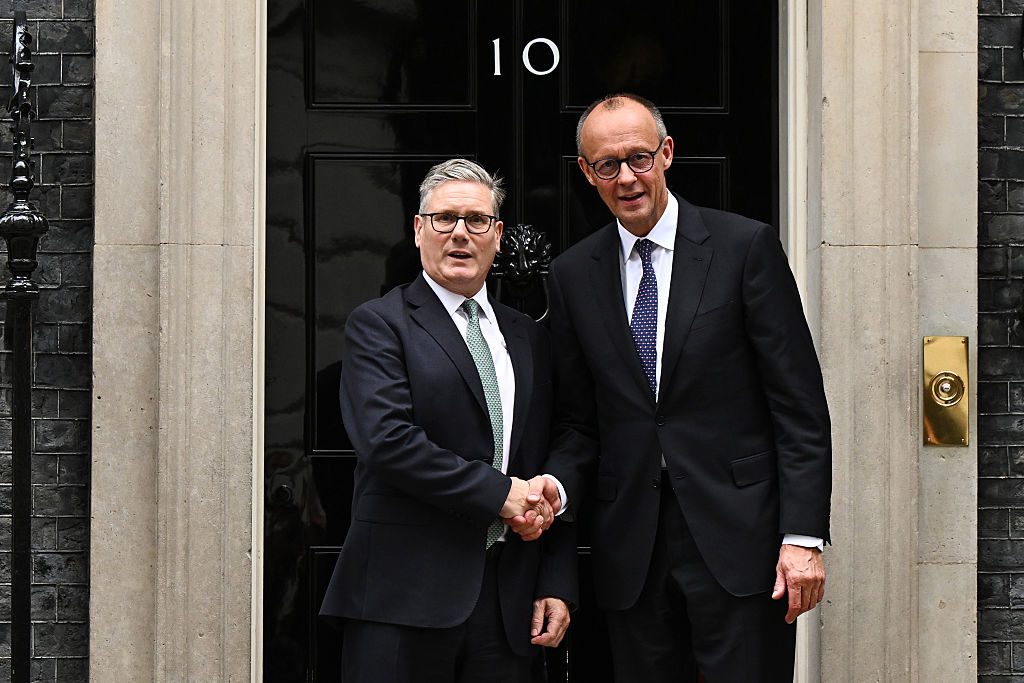Today was “a historic day for German-British relations”, Friedrich Merz said after his first visit to the UK as German Chancellor. That’s no exaggeration. Merz and his counterpart, Prime Minister Keir Starmer, have signed the first bilateral UK-Germany treaty since the Second World War. Among the crucial agreements in areas such as defence and infrastructure is a promise to tackle illegal migration to Europe together.
It’s easy to be cynical about “friendship treaties”. They often contain little more than warm words and symbolism. However, the agreement signed between London and Berlin today goes far beyond that, outlining 17 projects which are specific enough to be deliverable yet sufficiently high-level to withstand changes in government on either side. Remarkably, a “Joint Action Plan on Irregular Migration” is a top priority, second only to defence and security cooperation.
Germany has agreed to tighten its legislation on people smuggling by the end of this year, and the new law will make facilitating migrant routes to the UK a criminal offence. This will enable German authorities to crack down on activities such as storing boats intended for Channel crossings in warehouses and closing other loopholes for gangs operating in the country.
This is more than a symbolic act. Approximately 37,000 people attempted to cross the English Channel in small boats in 2024. They do so after travelling through continental Europe to reach the French coast, so solutions can’t be limited to bilateral agreements between France and the UK.
Illegal immigration is a pan-European issue, which requires coordinated approaches to be effectively addressed. It seems leaders are waking up to this reality now that new Right-wing parties are beginning to pose a real threat. The language in the UK-Germany treaty is remarkably robust. Common aims are listed as “deterring irregular migration to Germany and the UK” and “delivering secure borders”.
Of course, “taking back control of borders” was a central Brexit promise, and it’s also what the majority of German voters want, according to polling from earlier this year. But delivering this without hampering the other aims of closer cultural, economic and security cooperation between two of the largest economies in the world is a difficult circle to square.
There was an 80% drop in German school trips to the UK following Brexit. In German airports, British citizens often face long queues because they aren’t allowed to use the e-gates. Academic, political, cultural, and economic exchanges have been hindered by excessive bureaucracy and rising costs.
The Bilateral Cooperation Treaty aims to strike a workable balance by facilitating mobility between citizens of both countries, without restoring pre-Brexit freedom of movement. E-gate use for UK nationals will be tested from August and rolled out for all travellers as soon as possible. Group travel for schools will become visa-free, and a Joint Expert Group will identify ways to extend this to other contexts like academia and scientific research.
Such pragmatism seems a mile away from the mutual breakdown of relations post-Brexit. Crucially, though, the treaty doesn’t break promises to either electorate. It separates practical cooperation between Germany and Britain from political ideology. There is a recognition that Europe faces many new challenges as a continent, most notably on defence and immigration. Merz called security the main “thread running through the treaty”. Starmer, in turn, thanked him for his “decisive action” on illegal migration and for “disrupting the route to the UK”. Mainstream politicians are beginning to get the message from their voters: cooperation between countries with common interests isn’t a license for open borders.
It appears that leaders have finally come round to the more nuanced debate on immigration that their electorates have demanded for years. That’s not just good news for UK-German relations, but also for democracy itself.
